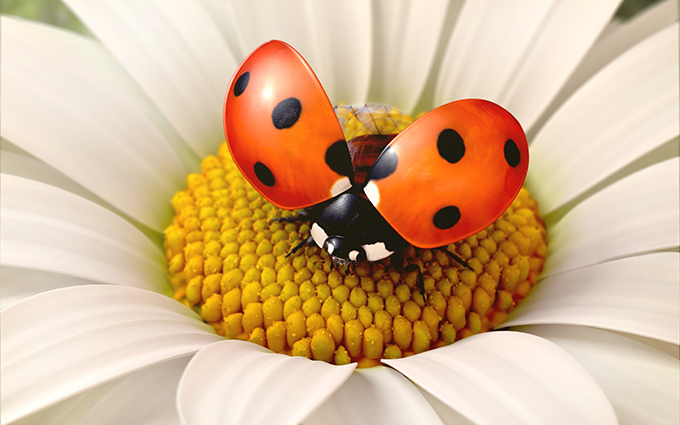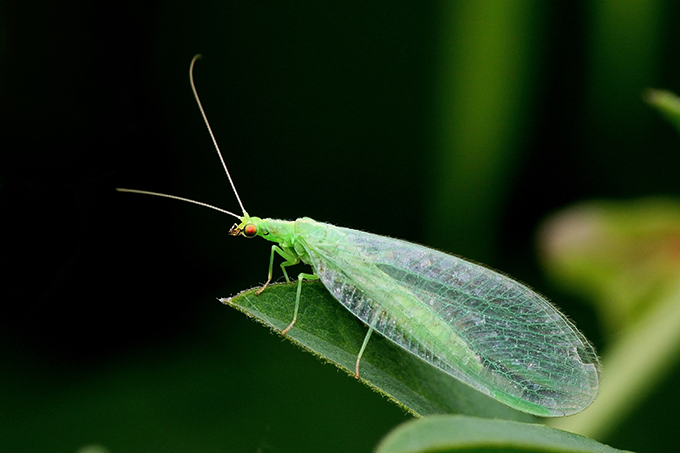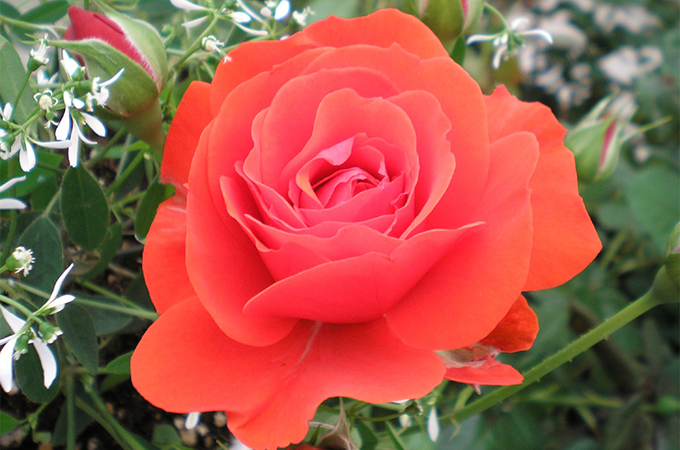How do you think about the bugs in your yard? Do see them as either “good” bugs, ready to help pollinate your plants or as “bad” bugs, out to destroy your garden? Fact is, most of them are neither one. More than 90% of the bugs in the average landscape are just there….. pretty much minding their own business, being benign little bugs…not pollinating or damaging. Taken as a whole, lots of activity from a wide variety of insects is usually the sign of a healthy back yard ecosystem.
That doesn’t mean we can’t play favorites. Recognizing the “beneficial” insects in all of their stages from egg to adult, and doing what we can to nurture them, is a practice every gardener should cultivate. And it’s easy to do.
Read on!
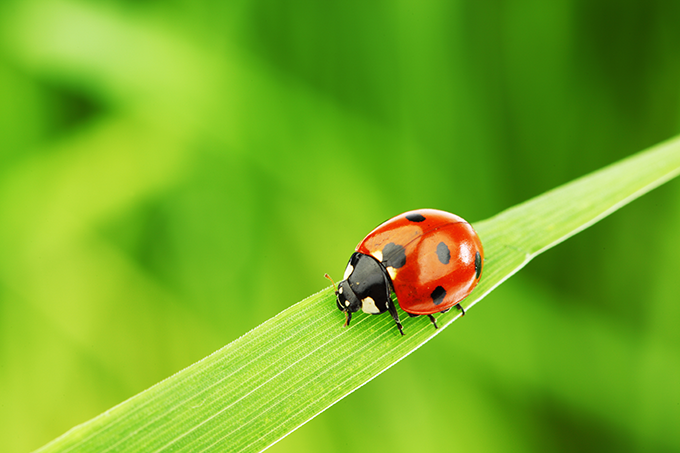
And the winner of the beneficial insect popularity contest is….
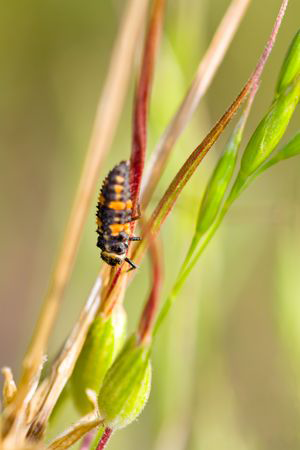 It’s really no contest at all. The Ladybug, more correctly known as the “Lady Beetle,” is usually everyone’s favorite. They’re tiny, they’re shiny, they’re red and they have polka dots, for goodness sakes. What’s not to love?
It’s really no contest at all. The Ladybug, more correctly known as the “Lady Beetle,” is usually everyone’s favorite. They’re tiny, they’re shiny, they’re red and they have polka dots, for goodness sakes. What’s not to love?
But take a look at the Lady Beetles’ larval stage. They’re not quite as endearing. And yet it’s the larva that does most of the insect control that makes Lady Beetles so valued in the garden. Lady Beetle larva are eating machines… kind of like a teenager who just can’t get enough pizza. Enlarge a Lady Beetle larva on a movie screen and you have the stuff of science fiction monsters.
Tagawa Gardens sells Lady Beetles for insect control, but there are some things you can do once you get them home to help them succeed. First of all, spray the foliage in your garden to make it more welcoming. Release the beetles late in the evening when they’re ready to stay put. And be sure you turn them loose near the base of plants that you know have food for them…. tasty aphids, for example. And remember that once that food source is gone, the Lady Beetles are likely to fly away to find their next meal. With luck, they will have laid some eggs so another generation can take over once the pests return, which they always will.
And if you want the Lady Beetles (or any other beneficials) to thrive, you need to eliminate the use of pesticides on the plants where they’re hunting for food. Insecticides are designed to kill insects. The Lady Beetles will not get a free pass. And for the record, aphids are born pregnant, and will routinely recover faster than the beneficial insects that feed on them.
A delicate beauty, indeed
I love Green Lacewings. With their bulging compound eyes and their see-through wings they look intense, yet delicate and fragile. Their larval stage is anything but fragile. Lacewing larva are commonly known as Aphid Lions. Get the picture? Aphid Lions are described as “voracious.” They’ll eat just about any other insect that’s not too big for them to handle…. including, at times, other lacewings. So goes Mother Nature.
An Aphid Lion has piercing mouthparts that inject a toxin and dissolve its prey. While they don’t have anything like the beauty of their parents, we should welcome them, indeed. And keep an eye out for Lacewing eggs. They’re usually laid on the underside of leaves where juicy aphids are just a short walk away once the eggs hatch. With their thread-like stalks attaching them to the leaf, they are a wonder to see.
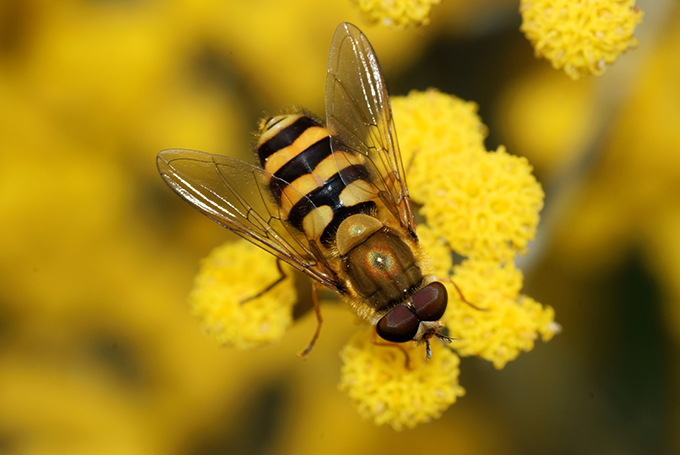
It’s not a bee. It’s not a wasp. It’s a flower fly!
Call them flower flies, hover flies or syrphid flies, these little insects are a gardener’s friend! You’ll see the adults quietly visiting flowers, feeding on nectar and pollen. It’s their plain-Jane larva in the form of maggots that will gladly chow down on aphids and thrips. But the larva don’t look appealing or helpful, so an anxious gardener could assume they’re pests. They are not!
Flower fly larva should be as welcome as Lady Beetles or Lacewings. Keep your eyes open for them. They could use some well-informed gardeners and little better P.R.
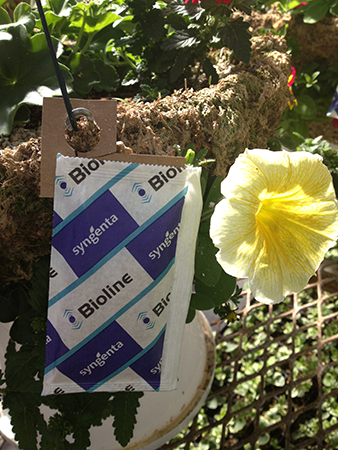 Bugs at Work!
Bugs at Work!
As the posters in our garden center indicate, bugs are hard at work at Tagawa’s. We’ve been releasing beneficial insects in our greenhouses for the past few years and creating an environment in which the “good bugs” can thrive. We are proud to say that it’s our primary form of indoor insect control.
Our beneficials program uses a variety of beneficial insect eggs that come in small white packets. You may see them distributed throughout the plants we’re selling. The tiny insects that emerge can occasionally be seen doing their job, patrolling the flowers and leaves, looking for their next meal. These beneficials are harmless to people, but offer a great earth-friendly way to keep bugs at bay.
Putting out the Welcome Mat for Beneficials
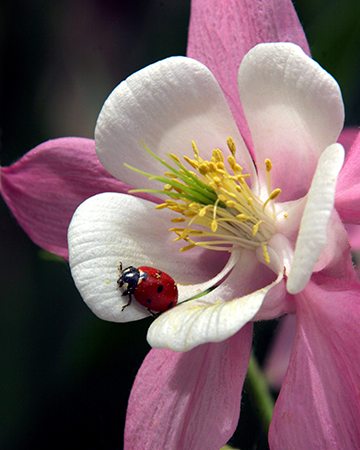 As I said earlier, beneficials and insecticide are a bad combination. If you want to invite helpful insects, you need to avoid using any pesticides on their target plants.
As I said earlier, beneficials and insecticide are a bad combination. If you want to invite helpful insects, you need to avoid using any pesticides on their target plants.
You can also add plants to your garden that are especially attractive to beneficial insects and may encourage them to visit. Some helpful plants include:
- Columbine
- Cosmos
- Coreopsis
- Dill
- Fennel
- Goldenrod
- Lavender
- Sunflowers
- Veronica
- Yarrow
Tagawa Gardens carries all of these plants in our Annuals and Perennials Departments.
We’d love to help you welcome the beneficials to your gardens, and put the pests in their place!
